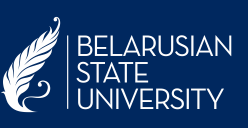
 |
Ïåäàãîãèêà èíôîðìàòèêè |
PEDAGOGY OF COMPUTER SCIENCE |
ISSN 2708-4124 |
|
THE PROJECT-BASED APPROACH TO TRAINING FUTURE COMPUTER SCIENCE TEACHERS FOR AN APPLICATION OF ARTIFICIAL INTELLIGENCE TECHNOLOGIES AS A PEDAGOGICAL TOOLS K.V. Rozov FULL TEXT: PDF (Rus) Abstract The article is devoted to the features of the implementation of a project-oriented approach to training future computer science teachers to use artificial intelligence technologies to solve problems of teaching, assessment and management of the educational process. Attention is paid to the increased focus of the scientific and pedagogical community on the use of generative artificial intelligence, which has become popular due to the availability and versatility of such systems as ChatGPT, Stable Diffusion, etc. A three-level content model of student interaction with artificial intelligence technologies as an object of study is considered. The following levels are distinguished: user, engineering and fundamental. The integration of programming and tools for implementing artificial intelligence algorithms in the process of training future computer science teachers is proposed with an emphasis on the engineering level, which allows students to use ready-made artificial intelligence algorithms to create their own educational projects – potentially useful applications in the educational environment. Examples of such applications are presented. Key words Artificial intelligence technologies, generative artificial intelligence, programming, project activities, practice-oriented training, professional training, future computer science teacher. Received: 10/26/2024; accepted for publication: 11/05/2024. For citation: ________________________________________ Rozov K.V. The project-based approach to training future computer science teachers for an application of artificial intelligence technologies as a pedagogical tools. Electronic scientific and methodological journal “Pedagogy of computer science”. 2024;1-2. Http://pcs.bsu.by/2024_1-2/2ru.pdf Content is available under license Creative Commons Attribution-NonCommercial-ShareAlike 4.0 International License. About the authors: K. V. Rozov
References 1. Lyz' N.A., Kompaniec V.S., Lyz' A.E. Sistemy iskusstvennogo intellekta v soprovozhdenii obucheniya i razvitiya studentov [Artificial intelligence systems in supporting student learning and development]. Pedagogy of Computer Science. 2023; 1-2:48-59. (In Russian) 2. Grigor'ev S.G., Anik'eva M.A. Povyshenie effektivnosti primeneniya tekhnologij generativnogo iskusstvennogo intellekta v obrazovatel'noj deyatel'nosti [Generative artificial intelligence application enhancement in educational activities]. Informatics and Education. 2024; 39(3):5-15. (In Russian). DOI: 10.32517/0234-0453-2024-39-3-5-15 3. Grinshkun V.V., Shunina L.A. Iskusstvennyj intellekt v obrazovatel'noj deyatel'nosti i podgotovke pedagogov: neobhodimost' issledovanij [Artificial intelligence in educational activities and teacher training: the need for research]. Informatizaciya obrazovaniya i metodika elektronnogo obucheniya: cifrovye tekhnologii v obrazovanii. Materialy VII Mezhdunarodnoj nauchnoj konferencii. Krasnoyarsk, 2023. P. 1056-1059. (In Russian) 4. Bashkina E.S., Lebedeva M.Yu., Obuhova T.M., Rodionova K.E. Analiz pedagogicheskih praktik primeneniya iskusstvennogo intellekta v obrazovanii (na materiale metodicheskogo hakatona) [Analysis of pedagogical practices of artificial intelligence application in education (on the material of methodological hackathon)]. Informatizaciya obrazovaniya i metodika elektronnogo obucheniya: cifrovye tekhnologii v obrazovanii. Materialy VII Mezhdunarodnoj nauchnoj konferencii. Krasnoyarsk, 2023. P. 986-991. (In Russian) 5. Samarina A.E. Vozmozhnosti ispol'zovaniya iskusstvennogo intellekta v rabote uchitelya [The use of artificial intelligence in education]. Razvitie nauchno-tekhnicheskogo tvorchestva detej i molodezhi. Sbornik materialov VIII Vserossijskoj nauchno-prakticheskoj konferencii s mezhdunarodnym uchastiem. Kirov, 2024. P. 237-241. (In Russian) 6. Gafuanov Ya.Yu., Podnebesova G.B. Formirovanie professional'noj IKT-kompetentnosti pri obuchenii programmirovaniyu budushchih uchitelej informatiki i IT-specialistov [The formation of professional ict-competence in teaching programming to future teachers of informatics and it-experts]. Tomsk State University Journal. 2020; 455:175-182. (In Russian). DOI: 10.17223/15617793/455/24 7. Rozov K.V. Formirovanie professional'noi gotovnosti budushchikh uchitelei informatiki k primeneniyu tekhnologii iskusstvennogo intellekta [Formation of professional readiness of future informatics teachers for using artificial intelligence technologies]. Informatics and Education. 2022; 37(2):50-63. (In Russian). DOI: 10.32517/0234-0453-2022-37-2-50-63 8. Baramzina S.A. Nekotorye podkhody k opredeleniyu ponyatiya «Sredstvo obucheniya» [Definining the term "means of education"]. Integration of Education. 2006; 45(4):52-55. (In Russian) 9. Levchenko I.V., Sadykova A.R., Abushkin D.B., Kartashova L.I., Kondrat'eva V.A., Moiseev V.P. Osobennosti podgotovki po programmirovaniyu budushchih uchitelej informatiki [Features of programming training of future teachers of informatics]. RUDN Journal of Informatization in Education. 2021; 18(4):337-346. (In Russian). DOI: 10.22363/2312-8631-2021-18-4-337-346 |